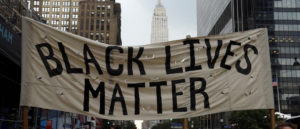June 04, 2020
On Black Lives Matter and Discussing Race with Your Children
As protests spurred by the murder of George Floyd are now in their second week, many parents are having tough conversations with their children about what is happening across the country. It’s critical to say that, regardless of whether or not there are active, organized riots or peaceful protests, this is the inherent burden and responsibility of parents of Black children every day of every year.
This conversation is a difficult one, and frankly, it should be. There is nothing comfortable about racism. It is critical that we educate our children about the systemic oppression of Black people in America, and champion their lives and stories.
If you’re beginning these types of conversations for the first time, start by getting a sense of your child’s current understanding of race, diversity, and what’s happening right now. Kids are members of our communities too, and they know way more than we think they do; there’s no need to sugarcoat or distract from the issue at hand. If your children question the protests or destruction of property, you can use this as a teaching moment. Share the history of demonstrations throughout the years, why Black Lives Matter and the history of Black people in America. There is a conversation for every age—we love this guide from Parents.com.
Even more important than having conversations regarding racism is building an anti-racist home and family unit. There are many ways to do this: revamping your home library, assessing the activities in which your child participates. Common Sense Media compiled resources on how to use media to understand oppression, racism, and bigotry. It is our job as parents to raise empathetic, compassionate, anti-racist individuals who are aware of their privileges—if they have them—and the inherent systemic biases that exist in every capacity of this country.
For every resource you introduce to your child about racism—add 10x that amount of literature regarding race positivity. It is up to us, the parents, to ensure that we raise our children in an anti-racist and accepting home. Black Lives Matter.
